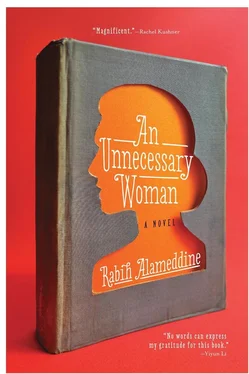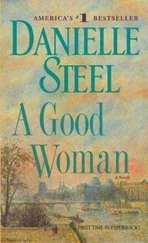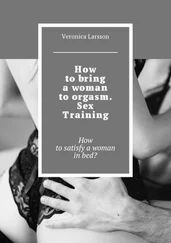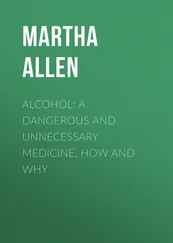Beaming and preening, the girl counts the notes with the nimble fingers of a Beiruti moneychanger. She turns around, still counting, and begins walking back to her mother.
“Stay in school,” I tell her.
“It’s the holiday break,” she replies without looking up or back, engrossed with her bounty.
I tuck in a strand of blue hair, adjust my scarf, and continue on my way.
In one of these side alleys, I can’t remember exactly which, I had a humiliating experience that loiters in my memory, almost seventy years later. The recalled event no longer causes me much pain. I must have been a few months past four years old; my mother was second-trimester pregnant with my half brother the eldest. We were hurrying home, she dragging me by the hand. She walked with complete concentration and no little consternation. I couldn’t understand then, nor would I for a long time, her terror of being a disappointment to her husband, to his family and hers. Like most of us, she was suckled on the milk of patriarchy (the courage of men, the fidelity of women). She sincerely believed that the world curdled if her husband held his breath, and if his every whim wasn’t met, the universe itself turned to ash.
I still remember my hasty footsteps that day, their uncertainty, my sturdy brown-and-cream shoes of rubber and cloth, recently bought but long outdated. We traveled this path regularly, but that one time was different. Whether she was going to be tardy, wouldn’t be on time to cook his dinner, finish cleaning, iron his nightshirt, or something else, I don’t know. I know that it was still light, so he couldn’t have reached home yet. I know that I could concentrate only on her calves, how they slid like tectonic plates with each step, and not on the familiar sights of my surroundings. She was running late, but not running because of her condition; passersby would have brooked none of that, would have felt obliged to protect my half brother the fetus from his irresponsible mother.
More people walked these streets then, many more.
In my mind, as I walk these streets now, I see her creamy calves as they were then, the calves of Hera or Athena in Rubens’s The Judgment of Paris . I conjure up the sway of her black skirt’s hem, its billowing below the saddle-shaped hollows of the backs of her knees.
As I walk these streets now, I note how much taller the buildings are today, most of them built in the fifties and sixties, how much taller I am now.
I remember I was panicking then. I needed to pee. I kept telling her that I couldn’t wait until we reached home. I must have imagined that she, sorceress that she was, could conjure a toilet for me. Unlike Lot’s wife, she wouldn’t look back, kept her steady gaze forward, toward her Mecca. She needed to urinate as well, she told me as we kept moving. She always needed to in her condition, but she was going to wait until she reached our apartment. She always did. If she could, so could I.
I must have begun to cry. I must have stumbled. I must have done something, because other people showered us with worried glances, some with disdain. She stopped our forward progress. Must I always make demands, make a scene? Why couldn’t I behave like normal children? My hand still in hers, she pulled me toward an alley between a couple of two-story ocher buildings. Severing our connection, she waved me away with a flapping hand. “There,” she told me, “do it there, and do it quickly.”
I may have been surprised or shocked at her pronouncement. I should have been one or the other, but I don’t recall. I ran into the alley as she stood guard with her back to me. Fearing I would be noticed by a passerby, I sneaked through the gate of one of the buildings. Behind a large flowering bougainvillea, half obscured under its panoply of red, I crouched.
A woman in a dark dress and a dark, hair-covering scarf screamed at me and called me names. I had assumed no one could see me. I’d looked around before beginning my desecration, but I hadn’t noticed the upper-floor balcony on which she stood. “Get out of here,” she kept yelling, but I couldn’t. I wasn’t able to stop peeing. I wasn’t able to meet her gaze either, or her fury. Her voice rose and her curses grew more vivid. My glance dawdled on the continental puddle forming in the soil below me.
By the time I was presentable enough to look up, my mother stood above me, looking more perplexed than angry, but only for an instant. When the balcony woman began cursing her and her parenting techniques, my mother unleashed a litany of imprecations so impressive that the woman turned red and speechless. The mute rude woman held on to the railing with a deathly grip, as if my mother had the power to blow her off the balcony. Below this balcony where the woman once reigned, an escutcheon depicting sheaves of wheat was carved into the stone, a make-believe crest that must have once been the same ocher color but had blackened, collecting the city’s soot and grime in its grooves.
My mother prodded me back onto the street, grasped my hand once more, and continued her march back home. She ignored me the rest of the way, but she mumbled to the sky, to herself. She didn’t hit me, she didn’t backhand the top of my head, but she was furious. She was a one-handed gesticulating fury on the go.
I’m unsure which of the two added the most fuel to her fire: that I embarrassed her, the woman thinking she was an imperfect mother, or that I interrupted her speedy stride, her husband thinking she was an imperfect wife. I remember being horrified throughout the return, my eyes glued to two spots on my left shoe, two wet spots on the cream-colored cloth, not the brown rubber. How would I explain to my mother?
I am marching back to my mother’s house. I can’t say the march is fully unconscious. I’d considered the idea this morning, but I hadn’t formulated a plan or made a firm decision. I’d been thinking about seeing my mother, and some muscle memory in my legs seems to have responded. My feet have been tortuously leading me with an uncertain pace in that general direction. As in many a fairy tale, I must end up there. Jung would have been unsurprised.
I’m not sharpening my knife, nor am I fluffing welcoming pillows. I should mention that I’m not fluffing pillows to kill her with either. I’m not planning anything. There will be no resolution, no epiphany; and most probably I won’t understand more than I do now. I guess I don’t want her skirl of terror to be my last memory of her. My intention — my goal — is simple.
I feel that I missed an opportunity at our last get-together, that I flubbed a pregnant moment. That was a pregnant moment, wasn’t it? Should I have said something to her?
“It’s me, Mamma, me.”
Should I have quoted Milton, what the daughter, Sin, says to her father, Satan: “ Hast thou forgot me then, and do I seem / Now in thine eye so foul? ”
Should I have slapped her?
Everything seems sharp, slick, and shiny after the rain. Some rust collects on the dead leaves of a tree that I can’t name. If she screams again when she sees me, I’ll kill her.
Instead of seeing her, I should go home and put Sebald away in the maid’s room.
I am proud that I finished the Austerlitz project. I consider it one of the best Holocaust novels. I have to say that much of what is being written about the Holocaust these days seems to be directed at the petite bourgeoisie. I find that when a subject has been heavily tilled, particularly something as horrifying as the Holocaust, anything new should force me to look with fresh eyes, to experience previously unexperienced feelings, to explore the hitherto unexplored. When I first read Primo Levi, my body shivered and spasmed at the oddest of moments for a week. I couldn’t read Borowski’s This Way for the Gas, Ladies and Gentlemen without clutching the edge of my desk. But then it took years, wading through mostly melodramatic books until I came across Kertész’s Fateless , to feel challenged once more.
Читать дальше












